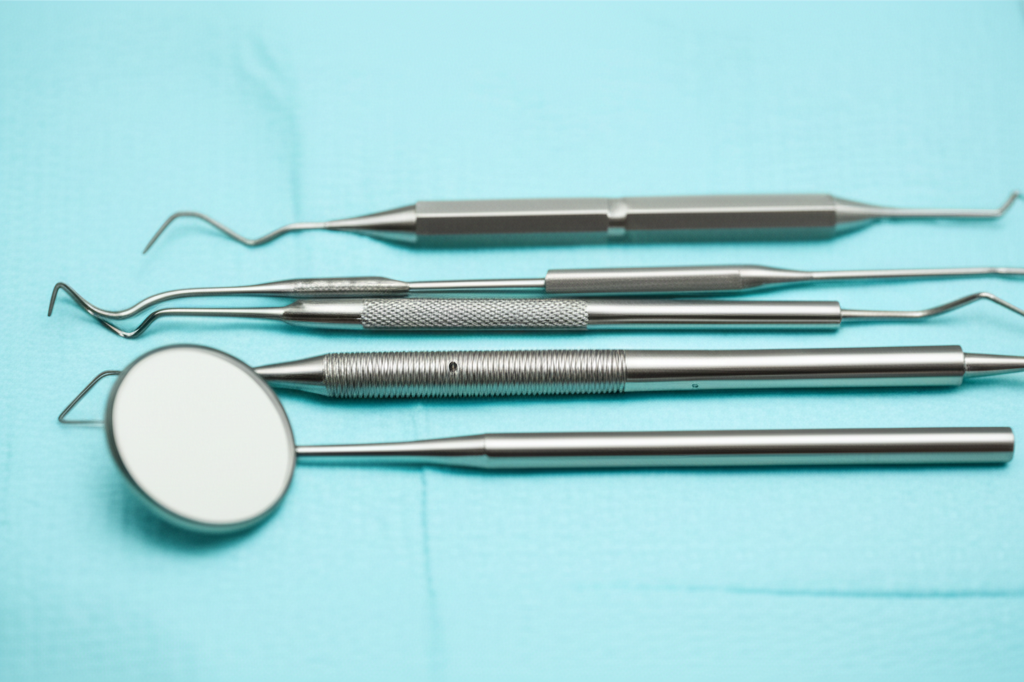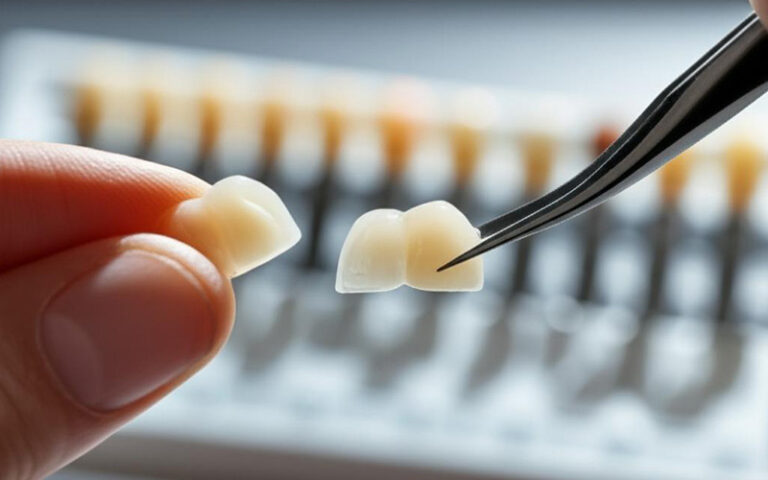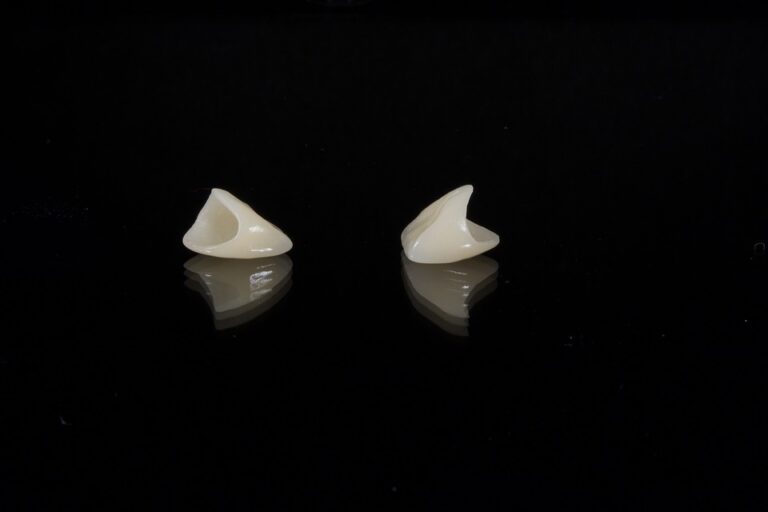
From Dental Hygienist to Dentist: My Firsthand Guide for Taking the Leap
Table of Contents
- Educational Prerequisites
- Tackling the Dental Admission Test (DAT)
- Gaining Clinical Experience and Shadowing
- Gathering Letters of Recommendation
- Crafting a Strong Personal Statement
- Program Length and Curriculum
- How My Hygiene Background Helped (and Sometimes Didn’t)
- Financial Considerations and Realities
Introduction: My Journey from RDH to Dentist
If you’re sitting at your dental hygiene chair, and thinking about maybe being the dentist one day, let me tell you: you really can do it. I know, because I did it myself. It’s not easy. It takes work, planning, and being ready to push yourself. My hope is to show you every step—what you need to do, how to apply, and what the good and bad parts are when you make the jump to get your DDS or DMD. I’ll use my own story, and what I learned along the way, so you get the real truth—and maybe a little boost if you’re still on the fence.
Why I Decided to Pursue Dentistry
So why did I go from being a dental hygienist to wanting to be a dentist? For a long time, I liked my job as a Registered Dental Hygienist (RDH). I got to know my patients, and I got pretty good at the hands-on stuff. But there were times—maybe a patient needed something I wasn’t allowed to do, or I wanted to help in a bigger way—when I wished I had more say. Maybe you know what I mean.
Of course, money was part of it, too. When I saw a dental hygienist makes around $85,000, while dentists usually make $170,000 or more, I started to think about it. Really, though, I wanted to be the one who could make the call, do more for my patients, and maybe own my own office one day. The chance to keep growing in my career, learn more, and make a bigger impact pulled me in.
If you’re thinking about it, ask yourself: do you want more freedom, more challenge, and a bigger voice in how care is given? Do you want to be the one in charge both when things are easy and when they get tough? For me, the answer was yes.
Laying the Groundwork: Core Requirements
It wasn’t just about sending in an application. I found out quick, there’s a lot to do first.
Educational Prerequisites
Here’s what I had to make sure I had done:
- Bachelor’s Degree: Some dental schools will say 90 credits is enough, but almost everyone who gets in has a bachelor’s. I had mine. If you don’t, that’s the first thing.
- Science Classes: Dental schools are pretty strict here. You need lots of classes in biology, chemistry (general and organic), biochemistry, physics, anatomy, and some want microbiology or statistics. Even with my bachelor’s, I went back for extra science classes.
- GPA: The honest truth is most people who get in have a science GPA between 3.5 and 3.7. If your grades weren’t great, you might need to retake some classes.
All this can take a year or two if you’re working or have a family.
Tackling the Dental Admission Test (DAT)
The DAT was the hardest test I’d ever done. It covers science, figuring out things in your head (perceptual ability), reading, and math. Most schools want scores in the 20–22 range out of 30, especially in science.
Best tip? Treat DAT study like a job. I took practice tests, looked at what I missed, and used online stuff and study buddies. If you don’t test well, start early. A prep course helped me a lot. The better your score, the more doors you open.
Gaining Clinical Experience and Shadowing
Being a RDH helps—I already had lots of patient hours. But dental schools still want to see you’ve watched dentists work, and that you know what their job really is. Some want a letter from a dentist you shadowed.
I asked local dentists to let me watch them work, and I saw things I’d never done before, like crowns and root canals. I also did volunteer work to see how dental care helps whole communities.
Gathering Letters of Recommendation
I got letters from dentists I shadowed and from teachers I’d had in science classes. Dental schools want references who can say you know your stuff, you work hard, and you care about patients. If you’ve been out of school a while, take new classes and get to know your teachers.
Looking back, I think good, real letters helped me get in. Don’t ask for just the quick, boring kind. Get someone who will give details and stories.
Crafting a Strong Personal Statement
This essay took time. I had to explain why I wanted to go from hygiene to dentistry. I wrote about how I wanted to do more for my patients, and where I hit walls as a hygienist. I showed moments where being a dentist would have made a real difference.
Be honest. Admissions folks have seen it all. Make it about you, not just your resume.
The Dental School Application Process
Once everything was ready, I had to go through the long application process.
AADSAS and Secondary Applications
Almost all U.S. dental schools use the ADEA AADSAS application. It’s long and wants everything—transcripts, test scores, essays, resume, experience. After that, some schools will ask for even more essays and charge a fee. I learned to send my main application in early, before summer ends. The sooner you send it, the better your chances.
Interview Tips and Insights
Getting my interview invite was an amazing day. Still, I was nervous—a one-hour talk could decide my future. What worked for me:
- Be real. Don’t just say what you think they want to hear.
- Be ready for common questions (“Why dentistry?” “How did being a RDH help you?” “What will you bring to our school?”).
- Think about real problems and times you’ve been a leader.
- Practice with friends or record yourself.
- Dress nice, be thankful, and listen as much as you talk.
I used stories from actual patients, so my answers stood out.
What Dental School Is Really Like for Hygienists
After the relief of getting in faded, the work really began.
Program Length and Curriculum
Dental school is always four years (if you already have a bachelor’s). The first two years are tough—lots of science, lots of studying, lots of tests and labs. The last two years are mostly working with real patients.
It’s hard work. I studied most nights, spent lots of hours practicing, and had to hit clinic goals. But you can get through it.
How My Hygiene Background Helped (and Sometimes Didn’t)
My time as an RDH helped me talk to patients, take their health history, and do basic things well. I knew about keeping things clean and safe.
But sometimes, my old habits didn’t fit the dentist job. Changing how I worked for bigger procedures, like root canals or crowns, was hard. My classmates came in with no habits, so it was all new for them—but they didn’t have anything old to “unlearn.”
Where I was best was working with people and helping nervous patients. All that chairside time really did give me a head start early on.
Financial Considerations and Realities
Let’s talk money—because dental school costs a lot. Tuition runs from $35,000 to $95,000 a year, not counting where you live or what you eat. By the end, my student loan was huge—like a mortgage. The average new dentist has about $300,000 in debt.
I had to live cheap, used scholarships and loans, and tried to save where I could. The good news: most dentists do make double what RDHs make, so you can get back to being ahead.
If money is scary for you, that’s fair. Lots of students work part time, get family help, or look for special loans or military support. I’d talk to students at your school to find out what works for them.
Becoming a Licensed Dentist: Steps and Pathways
Graduation wasn’t the finish line. I had to get a license before I could really start.
Board Exams and State Licensure
To work as a dentist in the U.S., you have to pass a big written test (INBDE) and a hands-on board test in your state. Some states also make you take a law test and get a background check. My hygiene experience helped with the hand skills test, and knowing how to keep calm with patients.
It wasn’t simple. I had to study a lot, sometimes mess up, and pick myself back up again. Don’t worry if you fail a practice test—just keep going. Also, dealing with the business and legal stuff was harder than I thought.
Career Paths After Dental School
With my DDS, I had lots of choices. I could work as a general dentist (with someone else, or buy my own office), work in public health, join research, or even teach. If you want, you can do extra school to become a specialist—like orthodontics or surgery—which means more years and loans, but often more pay.
If you want to learn about where dentistry is going, looking into things like a digital dental lab or 3d dental lab can show you new tech. The field keeps changing, and learning new things always helps.
Is It Worth It? Pros, Cons, and My Honest Thoughts
Now for the big question: was it worth it? Here’s my honest take.
Pros
- Higher Pay and Stability: Dentists make more, and it adds up year after year.
- More Control: I get to make the calls for patient care, and take charge in the office.
- Every Day’s Different: There are always new problems to solve.
- Tons of Choices: You can do private work, help in the community, teach, and more.
Cons
- Takes a Lot of Time: It’s four years of dental school (plus anything you still need before that). It can end up being six years or more from square one.
- Costs a Lot: Tuition, living costs, missing out on job money—all of that can pile up. The debt sticks around a while.
- Stress: Dental school is tough—there’s a lot to learn, and it can wear you down.
- Puts Life on Hold: I had to delay doing other things—like trips, big family plans, even buying a home—because school took so much time and money.
Still, I’d do it again. Helping patients on a bigger level makes the tough times worth it.
Conclusion: Advice from One Who’s Been There
So, can a dental hygienist become a dentist? Yes—you just need the vision, patience, and drive. Your clinical history helps, but you need to do the science classes, pass the DAT, and figure out the money. Take it slow and steady; make sure your foundation is strong, find mentors (they really matter!), and talk to others doing the same thing.
If you’re thinking about this path, start looking up dental schools, talk to real students, and visit campuses. A pre-dent advisor at your college can tell you what you might need to add, based on your unique classes and background.
At the end of the day, listen to yourself. Remember your reasons, know there will be hard times, and just keep going, step by step. Every class, clinic, and late night gets you closer to a job where you can make a big difference—and build a future you’re proud of.
If you want to learn more, look into teeth health or implants dental laboratory. There’s a lot out there, and you can go far.
I hope my story helps you decide what’s right for you. If you have questions, find groups, talk to students, and never be afraid to ask. Nobody does this alone.








